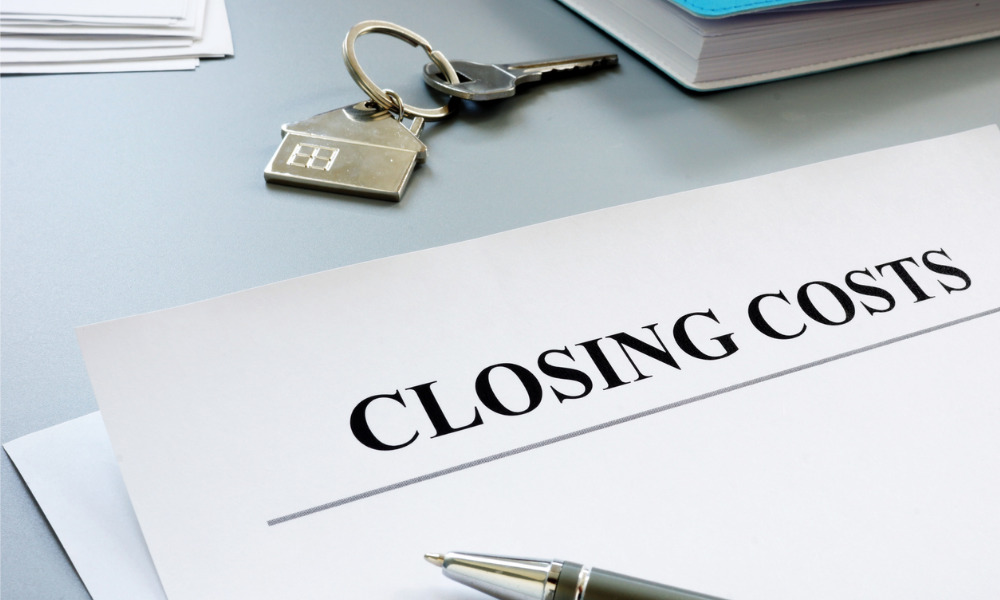Closing Costs in Mortgage Loans include many fees for service, many of which the homebuyer’s mortgage lenders provide or require. Closing Costs are the expenses over and above the Property’s price that the homebuyers and sellers incur to complete the homebuying transaction. Closing Costs may include loan origination fees, discount points, appraisal fees, and credit report charges. Closing Costs typically range from 3% to 6% of the total loan amount, and homeowners may negotiate their closing costs depending on the seller’s concessions.
Many costs come when buying a house, but one of the most important fees that homebuyers will encounter is the Mortgage Closing Costs. These are due whenever the homeowners finalize a real estate transaction and are a collection of fees that, as the name implies come due on closing day. The closing costs for a mortgage loan include all of the expenses related to applying for the Mortgage Loan and finalizing a real estate sale. The Mortgage Closing Costs vary state by state and institution by institution.
The Mortgage Closing Costs are paid at closing for the Mortgage Loan. These costs arise through the process of creating the Mortgage Loan. Closing costs cover the fees such as those associated with Borrowers home appraisal and searches on their Home’s title. The specific closing costs the homebuyers will need to pay depend on the type of Loan the homeowners take and where they are living. After saving for a down payment, house hunting, and applying for a mortgage loan, the Closing Costs can come as an unpleasant surprise to a homeowner.
What Are Closing Costs?
Mortgage Closing Costs are the expenses that homeowners pay when they close on the purchase of a Home or other property. The Closing Costs include application fees, attorney’s fees, and discount points if applicable. The Closing Costs for a mortgage loan include all of the expenses related to applying for the Mortgage Loan and finalizing a real estate sale. Some of the costs are related to property, while others are related to the Mortgage Lenders service and paperwork that is involved in the transaction.

What Does Closing Cost Includes?
The Closing Cost commonly includes:
- Application Fees: These are the fees charged by mortgage lenders to process Mortgage Applications.
- Attorney Fees: Fees are required in some states that are charged by real estate attorneys to prepare and review home purchase contracts and agreements.
- Closing Fees: These are the fees that are paid to the closing company.
- Courier Fees: These are the fees that are paid for the transportation of paper documents.
- Credit Report Fees: Fees that are charged to pull credit reports from three major credit bureaus.
- Homeowners Insurance: Evidence of a prepaid homeowners insurance Premium.
- Lead-based Paint Inspection: This is the fee paid to the certified inspector to determine if the property has hazardous lead-based paint.
- Title Insurance: These fees are paid to the title company and protect the mortgage lender and buyer in case the ownership dispute or lien arises not found in the title search.
- Origination Fees: These fees cover the administrative costs of processing a mortgage and typically 1% of the Loan Amount.
- Pest Inspection: These fees cover the cost of professional pest inspection for termites, dry rot, or similar damage.
- Discount Points: Points are optional, upfront payments to the lender to reduce the rate of interest on the Mortgage Loan.
- Prepaid Interest: Interest that accrues on the mortgage loan between closing and the date of the first Mortgage Payment.
- Private Mortgage Insurance (PMI): PMI is required with less than 20% Down Payment. A month of PMI may be mandated at closing.
- Property Appraisal Fee: This is the fee to assess the home’s fair market value.
- Property Tax: All the local property taxes incurred within 60 days of the Home Purchase.
- Recording Fees: Fees charged by the country or city for the recording of public land records.
- Survey Fees: Fees charged by a surveying company to confirm the property’s boundaries.
- Title Search Fees: Fees charged to analyze property ownership records.
- Transfer Tax: The tax levied by the state or local government to transfer the title from the seller to the buyer.
- Underwriting Fees: These are the lender fees to verify the homebuyer’s financial information, income, employment, and credit for final loan approval.
How Much Are Closing Costs?
The Mortgage Closing Costs typically run about 2% to 5% of the Total Loan Amount. The total tab for Mortgage Closing Costs depends on the three key factors:
- The Price of the Home.
- The Home’s Location.
Whether the homebuyers are Buying or Refinancing. However the Mortgage Closing Costs average around $7,000 nationally for a single-family property. It is important to note that these costs vary widely by Mortgage Lender and Location. The best way to determine what the homebuyers will owe in closing costs is to look at the Mortgage Loan estimate provided by the Mortgage Lenders.
Who Pays Closing Costs?
Both homebuyers and sellers pay Mortgage Closing Costs. However, the homebuyers usually pay most of them. The homeowners can negotiate with the sellers to help cover the closing cost as part of their seller concessions. This can be extremely helpful in making the Home purchase more affordable.
Conventional Mortgage Loans: The breakdown of seller concessions limit for the conventional mortgage loans are as:
For primary residences:
- Down payments of 25% or more: 9%
- Down payments of 10% – 24.99%: 6%
- Down payments less than 10%: 3%
For second homes:
- Down payments of 25% or more: 9%
- Down payments of 10% – 24.99%: 6%
FHA Mortgage Loans: The FHA Mortgage loans are more straightforward and the contribution limit is 6% based on the lesser of the appraised value and the purchase price.
VA Loans: The VA Loan seller concessions a couple of different rules depending on what they are being applied to. The full amount of seller concessions can be applied to discount points, origination costs, surveys, appraisals, and credit report fees up to a limit of 4%.
Jumbo Loans: The Jumbo Loans Seller concessions may vary from lender to lender.
How To Lower Closing Costs?
Homebuyers can’t avoid paying all closing costs, some can be negotiated, potentially saving borrowers money. Here are a few tips to lower closing costs:
- Look for Mortgage Lenders that offer discounts: Consider working with a mortgage lender that does not charge the origination fees. If the homebuyers get a mortgage at their bank, they can also try asking for a discount or fee waiver, since they are already a customer.
- Apply For the Down Payment Assistance: Particularly if the borrowers are first-time homebuyers then explore down payment assistance and grants that can help them cover the closing costs.
- Use No-closing-cost Loan: Homebuyers need to look into a no-closing-cost mortgage. However, the homeowners will still “pay” the closing costs, either by financing them with the mortgage or paying a slightly higher interest rate.
How To Pay Mortgage Closing Costs?
To cover all these costs, the homebuyers will either need to provide a cashier’s check at closing or wire funds to the escrow account. Some of the Mortgage closing costs, such as appraisal fees and home inspection fees, are paid upfront when the mortgage process begins.
Frequently Asked Questions (FAQs)
Question 1: When Are Closing Costs Due?
Answer: The Mortgage Closing costs are paid on the scheduled closing date. The lender won’t wire funds until the attorney agent provides signed documents and proof they’ve received the amount due.
Question 2: When are Closing Costs paid?
Answer: The majority of mortgage closing costs are paid when the homebuyers sign their final loan and purchase documents at closing. the homeowners will pay some of the fees, such as for an appraisal and credit check, ahead of time.
Question 3: Can Mortgage Closing costs be included in the Loan?
Answer: Homebuyers do not have to pay mortgage closing costs out of pocket when they close. The homebuyers may be able to roll closing costs into the home loan or they can also negotiate to have the seller shoulder some of the closing costs.
Question 4: How Long Does the Closing Process Take?
Answer: The Loan closing process depends on the loan type, the mortgage lender, and how fast the homeowners send over the documentation they need to process and underwrite your application.
The Bottom Lines
The Mortgage Closing costs include various fees due at the closing or settlement of a real estate transaction. The homebuyers are responsible for most of the costs, which include the origination and underwriting of a mortgage, taxes, insurance, and record filing. Closing costs are the processing fees the homebuyers pay to their Mortgage Lenders when they close on their Mortgage Loan. The Closing costs must be disclosed by law to homebuyers and sellers and agreed upon before a real estate contract is completed.
